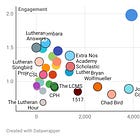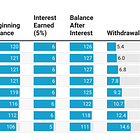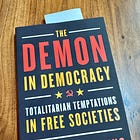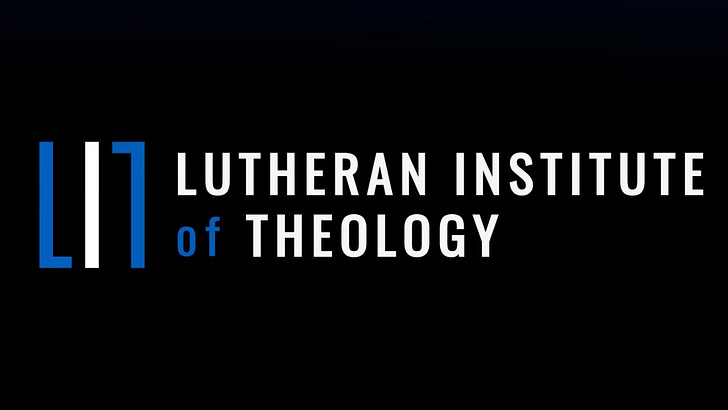Interview with Pr. Bryan Stecker, On The Line Podcast
Everything you hear and read from this interview (and all of Ad Crucem News) is a personal opinion. We do not represent or speak for any entity, organization, faction, bloc, corporation, employer, etc. We do not receive compensation, benefits, gifts, or kickbacks for this Substack or the content we publish from third parties. We will never accept inducements to shade our opinions, and we pray that God would grant us humility and steadfastness in this life until we see the Lord Jesus face-to-face.
Tim had the opportunity to travel to Waconia, MN, in late April for an in-person interview with On The Line (OTL) host and Lutheran Institute of Theology (LIT) entrepreneur, Pr. Bryan Stecker. OTL is the #1 Lutheran YouTube Channel. Ad Crucem did not ask for, or receive, compensation from the interview, and declined reimbursement for travel and lodging expenses.
Summary of topics covered in the interview
Below is a summary organized into discrete topics, listed roughly in the order they appear, with key points highlighted for each.
Decline in Lutheran Church Membership and Attendance
The discussion highlights a catastrophic drop in LCMS (Lutheran Church–Missouri Synod) weekly attendance from 1.1 million in 2000 to around 420,000–522,000 in 2023, attributed to rejection of scriptural authority (e.g., Genesis 1:28 on being fruitful and multiplying), poor record-keeping, and generational teachings from the 1950s–1960s that undermined biblical truth, leading to fewer children and church disengagement.
Related articlePastor Supply and Shortage Narrative
Contrary to the common claim of a pastor shortage, active pastors increased by 5% from 2014–2023, while attendees per pastor halved (from ~186 to 94). This leads to underpaid pastors, rural church struggles due to depopulation, and calls for young seminarians to have backup careers. The issue is framed as too few Christians in church rather than too few pastors.
Related articleDemographic Projections and Fertility Trends
Using graphs and models, projections show potential extinction-level decline if trends continue (e.g., down to 160,000 attendees by 2050, 18,500 by 2100). However, rising fertility rates (TFR potentially reaching 3.0 among confessionals especially) could stabilize or recover attendance to 1 million by 2131, emphasizing the need for family-focused growth over external recruitment.
Related articleBiblical Teaching on Family, Birth Control, and Contraception
Criticism of church teachings that de-emphasize Genesis 1:28 ("be fruitful and multiply") as outdated, aligning with cultural norms on small families and birth control (a grave sin). Encouragement for large families, multigenerational support, and viewing children as blessings, not burdens, who will combat demographic collapse.Church Worship Styles and Priorities
Critique of shifting from biblical teaching and liturgy to contemporary services focused on community, relationships, and entertainment. This infantilizes attendees and competes poorly with secular activities; traditional, reverent worship is seen as especially attractive to today’s youth.
Related articleFinancial Giving and Church Sustainability
Many churches rely on 5–10% of families for most funding, with low overall giving (e.g., equivalent to a few Starbucks visits). Examples include new luxury vehicles in parking lots while pastors struggle financially; calls for better priorities, sacrificial giving, and supporting pastors' families adequately.
Related articleImpact of Sports, Leisure, and Family Schedules on Church Attendance
American youth sports and recreation (e.g., travel leagues) prioritized over church, with some congregations accommodating by shifting services and providing bespoke services or special treatment (e.g., catechism class adjustments). This signals church as optional; emphasis on making faith central, with examples of families relocating near churches for community.
Related articleCOVID-19 Church Responses and Aberrations
Harsh criticism of church closures, remote/virtual communion (called "witchcraft" per CTCR), and compliance with government mandates, violating commands for corporate worship. Examples include "ding-dong ditch" communion. Realization that COVID-19 data was being manipulated, effectively accelerating attendance decline by a decade.
Related articleViews on Marriage, Divorce, Abortion, and Homosexuality in the Church
Strict adherence to scripture: divorce disqualifies pastors, abortion is rejected, and homosexuality and cohabitation must be confronted. Pew research shows significant minorities in the LCMS hold permissive views, especially older generations; calls for discipline and no "niceness" over doctrine.
Related articleOpioid Crisis, Fentanyl, and Social Despair
Discussion on U.S. drug issues (e.g., meth, fentanyl inflows from China via Canada/Mexico), linked to despair from job losses, rust belt decline, and unfunded liabilities (~$200 trillion). Ties to broader euthanasia/assisted suicide pushes (e.g., in Canada, Japan) as ways to reduce economic burdens.
Related articleGovernment Policies, Unfunded Liabilities, and Eugenics Parallels
Critique of policies like single-payer healthcare (using Native American reservations as examples), inflation, immigration for cheap labor, and "killing off" liabilities via drugs/COVID/euthanasia. Parallels to Soviet Russia, South Africa, and Ponzi-like social programs.
Related articlePreaching Quality and Seminary Training
Need for skilled, challenging preaching (pitching "higher and faster") over formulaic law-gospel structures or short sermons. Criticism of low expectations, ineffective evangelism, and focus on hermeneutics over content; calls for studies on why preaching has failed to retain and gain members.
Related articleResurgence Among Youth and Confessional Lutheranism
Younger generations (especially men) reject lax views, seeking militant, authentic theology in confessional churches. High zeal for scripture, liturgy, and piety; contrast with older cohorts' gaps (e.g., Gen X absence).
Related articlePersonal Background: Immigration from South Africa
Family moved to the US via green card lottery due to corruption, racial animus, farm invasions, black economic empowerment, and threats (e.g., "kill the boer"). Details on South African society: apartheid's economic shift, tribal conflicts, healthcare collapse, and failed missions.
Related articleConversion to Lutheranism
From Baptist (Spurgeon-style) and Word of Faith backgrounds. Rejection of dispensationalism, antinomianism, and works-based views; divine service as God serving us.
Related articleBroader Critiques of South African and Global Issues
South Africa's post-apartheid failures: corruption, reversal of onus in law, DEI-like policies, tribal riots (e.g., 2021 looting), prosperity gospel aberrations. Comparisons to US trends in politics, media, and church (e.g., Lutheran Church Canada's collapse).
Related articleAd Crucem and Lutheran Institute of Theology Updates
Brief mentions of Ad Crucem's article on LCMS extinction, upcoming LIT courses (e.g., with Dr. Joel Biermann on ethics), launch date (August 4th), and church sign-ups.
Related article
These topics interconnect but are presented discretely based on shifts in the conversation. The overall tone is confessional Lutheran, emphasizing scriptural fidelity, cultural critique, and hope through family and doctrinal recovery.
☩TW☩
























Tim, thank you for sharing your expertise and witness. We appreciate your courage to bring this information into the light. We pray the synod will consider the implications of your forecast and take action rather than just form another committee. The LCMS is blessed that our Lord brought you, Wanita and your family here to the US. We pray our Lord will bless you as you continue the work that He has prepared in advance for you to do.